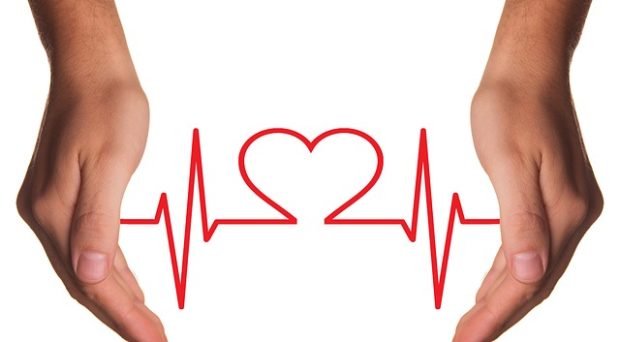
Why is it important not to consume excess salt in the diet, and how does this increase a person’s risk of cardiovascular disease?
Eating too much salt can cause high blood pressure, which increases the risk of heart disease. The good news is that eating less salt can help reduce your blood pressure. Every 10mmHg reduction in systolic blood pressure reduces the risk of a major cardiovascular event (heart disease or stroke) by 20%.
Eating too much salt can cause high blood pressure, which increases the risk of heart disease
Could you describe some of the key challenges in helping people to reduce their salt intake?
It’s a common misconception that the best way to reduce the amount of salt you eat is to add less salt to meals, at the table, or when cooking. However, the majority of salt we eat actually comes from packaged or processed foods, and this makes it hard to know how much salt we are really eating.
There has been a lot of progress in reducing the salt content of processed foods in the UK, particularly foods that contribute a lot to dietary salt intake such as bread and processed meats. However in many cases there is still a huge variation in the salt content of some apparently similar products. A recent survey by the campaign group CASH (Consensus Action on Salt and Health) found a difference of roughly 40% in the salt content of some types of food, including different brands of beef burgers, different brands of baked beans; and different types of margarine. This means that there will often be a lower salt alternative for the foods we commonly buy and in some cases we could reduce the amount of salt we eat just by switching to a different brand.
It can be tricky to identify these lower salt alternatives to the foods we normally buy
It can be tricky to identify these lower salt alternatives to the foods we normally buy. Although it’s easy to pick the low-salt baked beans from the standard baked beans because it says ‘low- salt’ on the tin, not all products are so clearly labelled. Many packaged or processed foods have ‘traffic light labels’ to indicate the salt content; a green traffic light indicates it is a low salt product. However, most of us don’t have time in the supermarket to read the labels of every product in a particular category to find the one that is lowest in salt. We need tools to help us access to the right information quickly and easily choose the lower salt options, it is a real challenge to make these healthier choices.
Can technology such as mobile phone apps help people to make lower salt choices to lower their risk of cardiovascular disease?
This is an exciting area of research. Mobile phone apps can reach and engage with large numbers of people; delivering information in the time and place that suits them in a way that traditional approaches to delivering lifestyle advice don’t. There has been a huge rise in the use of mobile phones and apps– across all age groups –so we think mobile phone apps have a lot of potential for delivering health advice and interventions to help people make healthier lifestyle choices.
Many of the health apps available haven’t been evaluated, so we don’t know if they really do help people. We think it is really important to properly evaluate health apps so that we know whether they work as expected, whether people will use them and how they can benefit patients and the wider public.
Our research involves testing a specific app to help people reduce their salt intake by helping them choose lower salt foods when shopping. In particular we are targeting people with high blood pressure because they have the most to gain from reducing their salt intake. If it works well, it could be used by anyone who wants to reduce the amount of salt they eat.
The British Heart Foundation award enables me to carry out my research
How did the British Heart Foundation become involved in your research?
I’m a recipient of a British Heart Foundation Clinical Training Fellowship award. This is a research award for early career researchers doing a PhD. As a public health specialist with an interest in prevention of diseases such as cardiovascular disease, I want to try to help people make changes to their lifestyle that can help reduce their risk of cardiovascular disease. My research supervisors and I applied for a British Heart Foundation research grant because we felt that our research was a good fit with their aims; and we were delighted that they prioritized this project for investment.
What does it mean to have funding support from the British Heart Foundation?
The British Heart Foundation award enables me to carry out my research. It funds my time as well as the cost of my research.
The British Heart Foundation have a rigorous assessment and review process for funding applications so being successfully awarded funding from them also gives us additional confirmation that our research questions are ones that have the potential to really add value in the field of cardiovascular disease prevention.
I’m very conscious that the British Heart Foundation funding comes from public donations and I really want to make sure I make best use of this support to conduct studies that matter to people. Involving and engaging patients and member of the public in the project is a really important part of this.
For more information about how you can get involved with raising awareness for British Heart Foundation Research, visit www.bhf.org.uk
Liked the blog? Read the ISRCTN record here
Comments